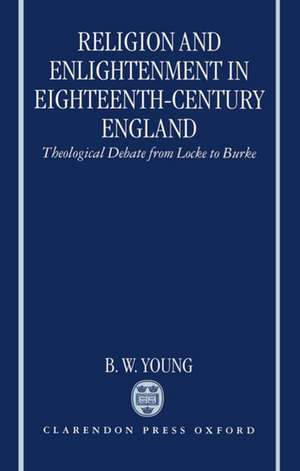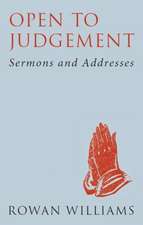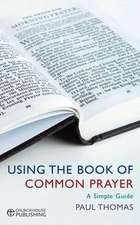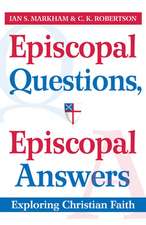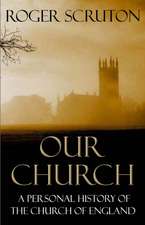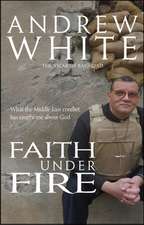Religion and Enlightenment in Eighteenth-Century England: Theological Debate from Locke to Burke
Autor B. W. Youngen Limba Engleză Hardback – 12 mar 1998
Preț: 861.80 lei
Preț vechi: 1308.60 lei
-34% Nou
Puncte Express: 1293
Preț estimativ în valută:
164.93€ • 171.55$ • 136.16£
164.93€ • 171.55$ • 136.16£
Carte tipărită la comandă
Livrare economică 03-09 aprilie
Preluare comenzi: 021 569.72.76
Specificații
ISBN-13: 9780198269427
ISBN-10: 0198269420
Pagini: 272
Dimensiuni: 145 x 224 x 19 mm
Greutate: 0.54 kg
Editura: Clarendon Press
Colecția Clarendon Press
Locul publicării:Oxford, United Kingdom
ISBN-10: 0198269420
Pagini: 272
Dimensiuni: 145 x 224 x 19 mm
Greutate: 0.54 kg
Editura: Clarendon Press
Colecția Clarendon Press
Locul publicării:Oxford, United Kingdom
Recenzii
an important addition to our developing understanding of both the English Enlightenment and the Enlightenment more generally ... valuable discussion of the attempt to change the clerical requirement of subscription to the Thirty-nine Articles. In its mastery of the issues and of the literature this supersedes all previous accounts ... Young does chart new territory; his study of English clerical culture in its own terms is a work of fine scholarship and of original challenging insights. It is an important addition to the literature on the Enlightenment in England and a valuable contribution to the debate upon the nature of the Enlightenment.
the well-worn myth of intellectual progress has now been subjected to critical scrutiny, and B. W. Young's book is an intelligent and persuasive example of the new approach.
Young demonstrates not only how central religion was to enlightenment discourse in England, but also how complex were the alignments of religious, intellectual and political committments. ... This book is a detailed, close reading of a number of neglected writers ... serves to restore a more whole picture of eighteenth-century intellectual life and to challenge the commonplace caricature of religion as a reactionary or decaying influence in the Age of Reason.
Young never allows the reader to settle into the groove of a normal book on the Enlightenment. Throughout the book, Young ties the reader down to interesting thinkers, letting them speak to us using their own categories and perspectives - not ours.
a closely-argued and intelligent book which seeks to redirect the study of eighteenth-century English intellectual history,
'...fully researched study...'
the well-worn myth of intellectual progress has now been subjected to critical scrutiny, and B. W. Young's book is an intelligent and persuasive example of the new approach.
Young demonstrates not only how central religion was to enlightenment discourse in England, but also how complex were the alignments of religious, intellectual and political committments. ... This book is a detailed, close reading of a number of neglected writers ... serves to restore a more whole picture of eighteenth-century intellectual life and to challenge the commonplace caricature of religion as a reactionary or decaying influence in the Age of Reason.
Young never allows the reader to settle into the groove of a normal book on the Enlightenment. Throughout the book, Young ties the reader down to interesting thinkers, letting them speak to us using their own categories and perspectives - not ours.
a closely-argued and intelligent book which seeks to redirect the study of eighteenth-century English intellectual history,
'...fully researched study...'
